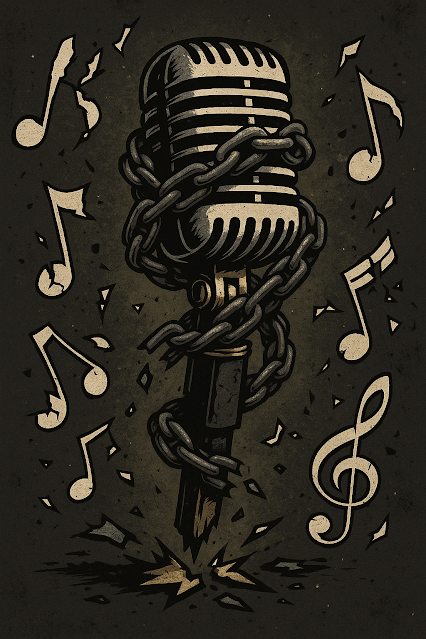Title: The Shopkeeper Delusion: Trump’s Trade War Fantasies and Economic Illiteracy
Act I: The Storefront of Stupidity
Donald Trump has never been known for intellectual depth, but every so often, he stumbles upon a metaphor so profoundly stupid it deserves archiving in the Library of Economic Misconceptions. His latest gem? America is a “luxury store,” and he, the self-appointed "shopkeeper,” will dictate prices to foreign countries shopping for our goods.This is not just laughably wrong—it’s a catastrophic inversion of reality. In global trade, America is the customer, not the boutique. We import far more than we export. We don’t sit behind a counter like Trump’s imaginary Manhattan storefront waiting for Canada to buy trinkets—we actively buy their lumber, their steel, their cars, their pharmaceuticals. Our economy runs on imports. If anything, Trump’s America is a compulsive shopper with a credit card and a trade deficit, not a high-end store curating the customer experience.
Act II: Metaphors That Malfunction
The so-called “shopkeeper” sees every trade deal as theft. If another country sells us goods, in his view, they are "ripping us off." He’s still stuck in some Ayn Rand-meets-QVC fever dream where the world conspires to rob the United States by... selling us things we voluntarily buy?
He’s incensed that Canadian lumber represents 30% of our home construction supply, yet claims we “don’t need their lumber.” Does he think American homes will sprout from patriotism and plywood prayers? It’s not just ignorance—it’s delusional bravado masquerading as strategy.
His inability to understand that trade deficits aren't inherently bad is another flashing red sign. A trade deficit simply means we consume more than we produce—a condition that reflects prosperity, not plunder. But Trump treats it like economic treason, insisting we should manufacture everything ourselves like some 1930s bunker economy with better hair dye.
Act III: Barbies, Babies, and Bullshit
At one point, Trump defended his tariff-induced price hikes by saying that maybe “a beautiful baby girl” doesn’t need 30 dolls—just 3. This, from the man who gold-plated a toilet. Apparently, consumer choice is excess when it inconveniences his policy delusions.
He talks about dolls like they’re weapons of mass destruction, yet the CEO of Mattel had to break it down on national television: tariffs won’t bring doll production back to America. It’s still cheaper and more efficient to produce overseas. Trump isn’t negotiating new terms—he’s tantruming into a trade war that the business community wants no part of.
Worse, when asked whether prices would go up, he dodged with nostalgic nonsense about pencil hoarding. You don’t need 250 pencils, he said. Just five. Maybe next he’ll suggest ration books and victory gardens.
Act IV: Deal or No Deal (There Are No Deals)
Trump keeps dangling “100 deals,” like a magician who forgot the rabbit but hopes the hat distracts you. Treasury officials have had to awkwardly admit under oath that there were no calls from Xi Jinping. There were no talks. No deals. No anything.
What there is? A looming tariff cliff, empty shipping containers, freaked-out logistics experts, and a global economy trying to survive the policy equivalent of a toddler scribbling over a blueprint.
The market, and Wall Street in general, remains in a state of denial. They think Trump is bluffing. That he’ll pull back. That he knows better. He doesn’t. He believes this. He believes his analogies, his fantasy storefront, his warped vision where punishing consumers equals economic strength. He’s not posturing. He’s just wrong—and arrogantly so.
Act V: American Carnage, Self-Inflicted
Trump is the economic equivalent of someone pouring gasoline on a fire because it “looks cool.” His policies aren’t strategic—they’re the tantrums of a man who never read a book but thinks he’s smarter than the authors.
He believes suffering is noble, that inflation is fake, that deficits are betrayal, and that supply chains are suggestions. He wants to punish American shoppers to teach Chinese manufacturers a lesson—and he thinks we’ll thank him for the pain.
This is not leadership. It’s vandalism with executive power.
And in the background, every time he babbles about “deals,” the world hears a man hawking imaginary wares in a storefront that doesn’t exist.
Conclusion: The Tariff Tantrum to Nowhere
Chris Hayes was right to ring the alarm. Trump isn’t bluffing. He’s just economically incoherent and pathologically convinced of his own genius. That’s not a minor flaw—it’s a recipe for national economic disaster.
If you were wondering whether a single man could sabotage a global economy while thinking he’s selling you a handbag at a discount—the answer is yes.
His name is Donald Trump.
And he thinks you’re the fool for not buying it.




Comments
Post a Comment